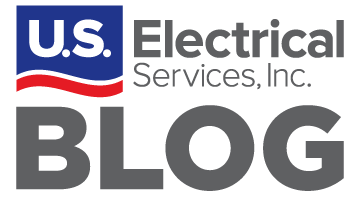
With our homes’ reliance on electricity and electrical appliances, one wrong move can be disastrous. Failure to check the fuse, appliances, outlets, and do regular maintenance can cause hazards to go unseen, which may result in dangers such as electrical fires.
This is why it is becoming increasingly important to do maintenance because this will save money from performing repairs or replacements that would have been prevented had they been checked and inspected.
Remember the Golden Rule: Safety First
Doing electrical repairs or home maintenance without proper training, preparation, or any safety tools nearby is a definite no-no. Assign safety procedures whenever you are dealing with electricity.
- Remove any water from the vicinity of electrical items, especially during cleaning.
- Always turn off the fuse before tackling any electrical repairs.
- Unplug electrical devices or appliances before handling them.
- Do not use metal ladders when doing electrical tasks.
- Prevent children from being electrocuted by covering the exposed outlets.
- A professional must immediately check obvious signs of electrical malfunctions such as flickering lights, electric shocks during plugging, and more.
When the issue seems serious, do not attempt to fix it yourself and contact a professional instead.
Use Electronics Accordingly
Always be cautious when handling electronic devices and appliances. Do not plug too many devices and overload sockets, as this may cause blackouts or fires. Avoid putting electrical items near devices emitting heat, such as ovens and hairdryers. Never put them near water. Turn off anything you are not using, and finally, make sure cords are not being blocked or covered.
Additionally, the Occupational Safety and Health Administration recommend installing ground-fault circuit interrupters so that outlets in places where water can easily reach them such as the kitchen, bathroom, and laundry rooms can be turned off easily in case of electrical malfunctions.
Be Mindful of Plugs, Outlets, and Wires
All electrical components should be handled with care. All loose plugs should be replaced. Do not plug them forcefully into outlets or bend the prongs as they could cause shocks. Safety features such as built-in surge protectors in outlets are more advisable than regular outlets. Unplug cords when you are not using them. Replace any frayed or damaged wires. If there are frayed wires in your appliance, turn it off and fix it before using it again. Doing all this will prevent any electric shock, fire and electric hazard.
In old homes, always call an electrician so they could inspect if there are any problems with the wires and if there are any damage to them after a long time.
Schedule Routine Professional Check-ups
No matter how knowledgeable you are, there might still be something you’ll miss. It is advisable to contact a professional to make sure your electrical system is functioning well. Electricians can check circuit breakers, electric panels, and can change damaged wires to guarantee a hazard-free home.
If you follow the guidelines to proper electrical maintenance, this will ensure your home always runs smoothly and safely, as this is because one mistake can mean the difference between life and death.

